Coding / Computer Science
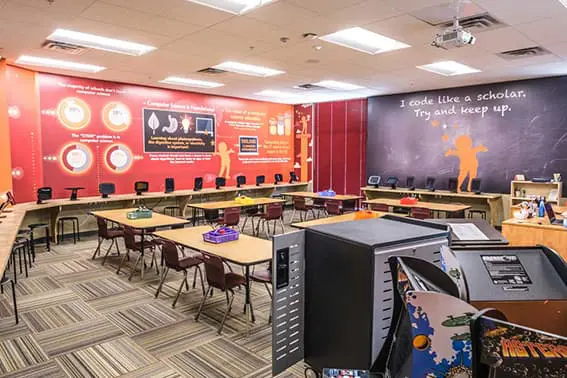
Every Scholar Has the Opportunity to Learn Computer Science and Coding!
Studies show that most schools in the U.S. do not teach computer science. However, at AOS, every scholar has the opportunity to explore the world of computer science and learn how to code. By making computer science and coding a part of every scholar’s learning experience, we are honoring our commitment to integrate technology into every facet of our academic program. In our computer science and coding class, scholars will learn the science behind programming and designing apps, making video games, as well as the skills needed to use other cutting-edge technology in the realm of computer science and coding.
Why Learn Computer Science/Coding?
From the cars we drive to the movies we love, virtually every part of our daily lives involves coding. Coding, or computer programming, is what makes it possible for us to create computer software, apps, websites, or control anything that has a computer in it. Even toys are digital and many of them are programmable. As our society’s reliance on technology increases, so does the importance of exposing scholars to the language of coding. By incorporating computer science/coding into our curriculum, AOS will be able to demystify the “magic” of technology and allow our scholars to understand the logic and science that controls it. There are currently 517,393 open computing jobs nationwide. Last year, only 42,969 computer science students graduated into the workforce. These jobs are in every industry and are projected to grow at twice the rate of all other jobs. We are confident that our computer science program will not only inspire our scholars to be the great designers and builders of the future but also give them the tools and exposure to be great innovators today.
How Computer Science Boosts Learning
We pride ourselves in our computer science curriculum and the hands-on coding experience it gives our students. The most obvious benefit of this curriculum is that it immerses young students in technology and engages them in creating apps and games, but the benefits extend well beyond the technical applications.
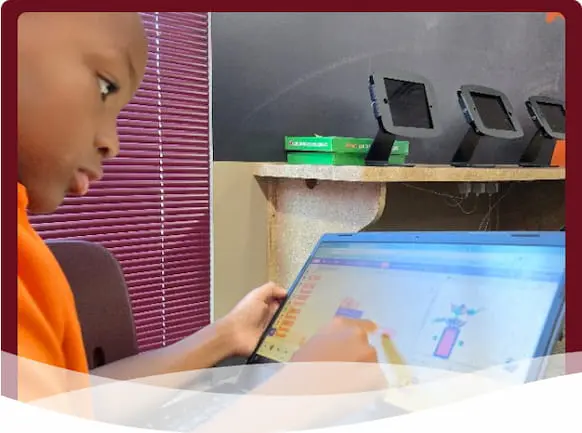
Math Skills
Coding is closely associated with math skills. It draws heavily on logic; you have to foresee eventualities and analyze how to reach a desired end. Building logic through coding will transfer into improved mathematic skills.
Coding also helps you develop visualization skills, which are a big part of math. You need to picture where you want your coding to take you, just like you need to picture math processes in your head.
And for kids who are resistant to math for math’s sake, coding may be just the application they need. If a math worksheet is challenging, coding can bring the math concept to life.
Language Skills
While we’ve long understood that coding complements math skills, new studies show that it is very relevant to language development as well.
Programming can also help with writing because you learn how to prioritize and organize information into a coherent, streamlined final product–just like you do with written language. Our coding classes for kids here at our school can help enhance writing skills.
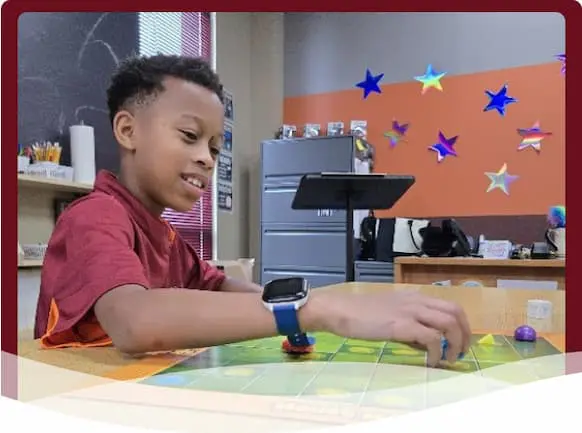
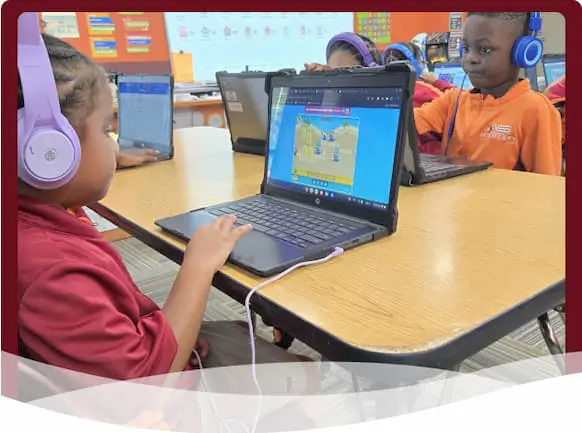
Problem-Solving
As any developer will tell you, code fails sometimes, and you’ll need creative problem-solving skills to get to the bottom of it. This is perhaps the most valuable lesson of coding. You learn to rebound from challenges and work out one creative solution.
Persistence
So many things come easy in this day and age that kids may not get as many opportunities to stick with a challenge. Coding gives students that all-too-rare opportunity to work at something until it’s finished. Can it require patience? Yes. Can it be frustrating? Yes. But when children prevail, they learn a precious lifelong lesson: that persistence pays off.
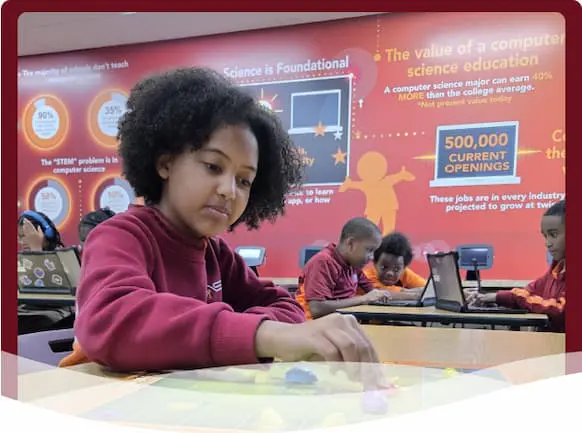
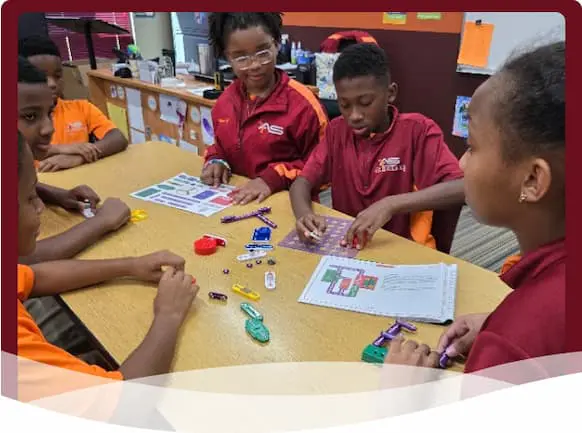
Productivity
Life is full of big tasks, and the ability to break these unwieldy tasks into small, manageable parts is key to success. Coding is all about deconstructing tasks and resolving them systematically. The same skills you use to code an app step by step will translate into completing a big briefing or report at work or finalizing a home improvement project. The ability to overcome problems strategically is invaluable for life.
Why Teach Computer Science to Elementary Students
Why not leave computer science instruction to high school or beyond? Because these skills are a perfect fit for the young brain. Young learners’ brains are like sponges, quickly soaking up new material for future use.
Coding involves the kind of hands-on instruction that engages young learners. It’s like the proverbial “spoonful of sugar” helping the “cognitive medicine” go down. If you tried to teach the full spectrum of skills wrapped up in coding in a lecture setting, you’d lose your audience. But give kids a chance to type on a keyboard and see their efforts coming to life on screen, and learning feels magical.
Computer science for elementary students also helps bridge the gap to technology. Not every student may be able to afford a nice tech setup at home or have parents who are tech savvy. But when kids get early access to technology skills, they enter higher grades with an affinity for computers, not a fear of them.
Overcoming Underrepresentation of Girls and Minorities
Research shows that girls who enjoyed STEM subjects (science, tech, engineering, math) as youngsters tend to lose interest in middle school. This disengagement is known as “the cliff,” and it results in fewer women working in STEM careers. (Two-thirds of the STEM workforce is male.)
Minorities are underrepresented, too. According to the National Center for Science and Engineering Statistics, Hispanic workers represent 15% of the total STEM workforce, and Asian and Black workers represent 10% and 9% respectively.
At The Academy of Scholars, we work to level the playing field by prioritizing a computer science curriculum. Students immerse themselves in fun and challenging coding projects. They see role models of their same race and gender who excel in the computer science industry. They learn about STEM career opportunities so that they can see a future in computer science. This helps position students to stay engaged in their middle school and high school computer science curriculums and beyond.
Preparing Your Child for Long-term Success
Regardless of whether your child wants to work in the computer science industry, a strong foundation in computer science can only benefit them. Whether your child is interested in medicine, graphic design, or accounting, they will be more marketable if they are proficient with computers.
As research shows the benefits of computer science for young learners, many “coding academies” and “computer science boot camps” are cropping up. But at The Academy of Scholars, we don’t think you should have to seek out extra services to introduce your children to the wonderful world of coding. We incorporate it into our curriculum so that every student has the opportunity to master basic coding alongside their peers in a setting that is familiar and comfortable to them.
This world is changing fast, and a strong foundation in tech is no longer optional. We stand by our mission to “invent the future by learning today and leading tomorrow.” By giving your child the opportunity to learn computer skills today, we’re preparing them to master the technology they will need to lead out tomorrow and beyond.
Exceptional. Christian. Affordable
The Academy of Scholars is a private, independent, Christian school located in Decatur, Georgia. Our Mission is to develop our scholars to their fullest intellectual, moral, spiritual, emotional, physical, and social potential in a safe, supportive, interactive, nurturing environment. Contact our office for enrollment.
